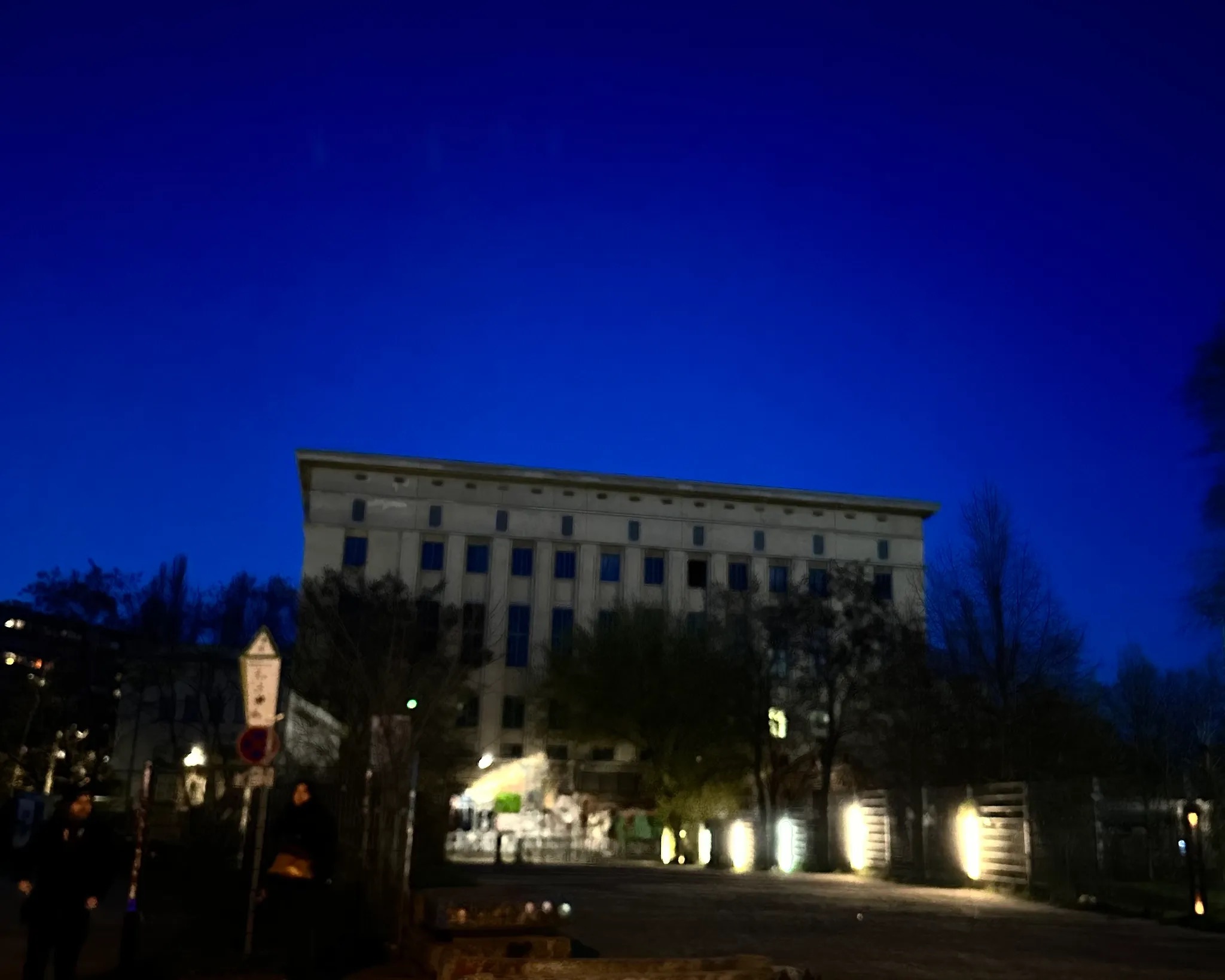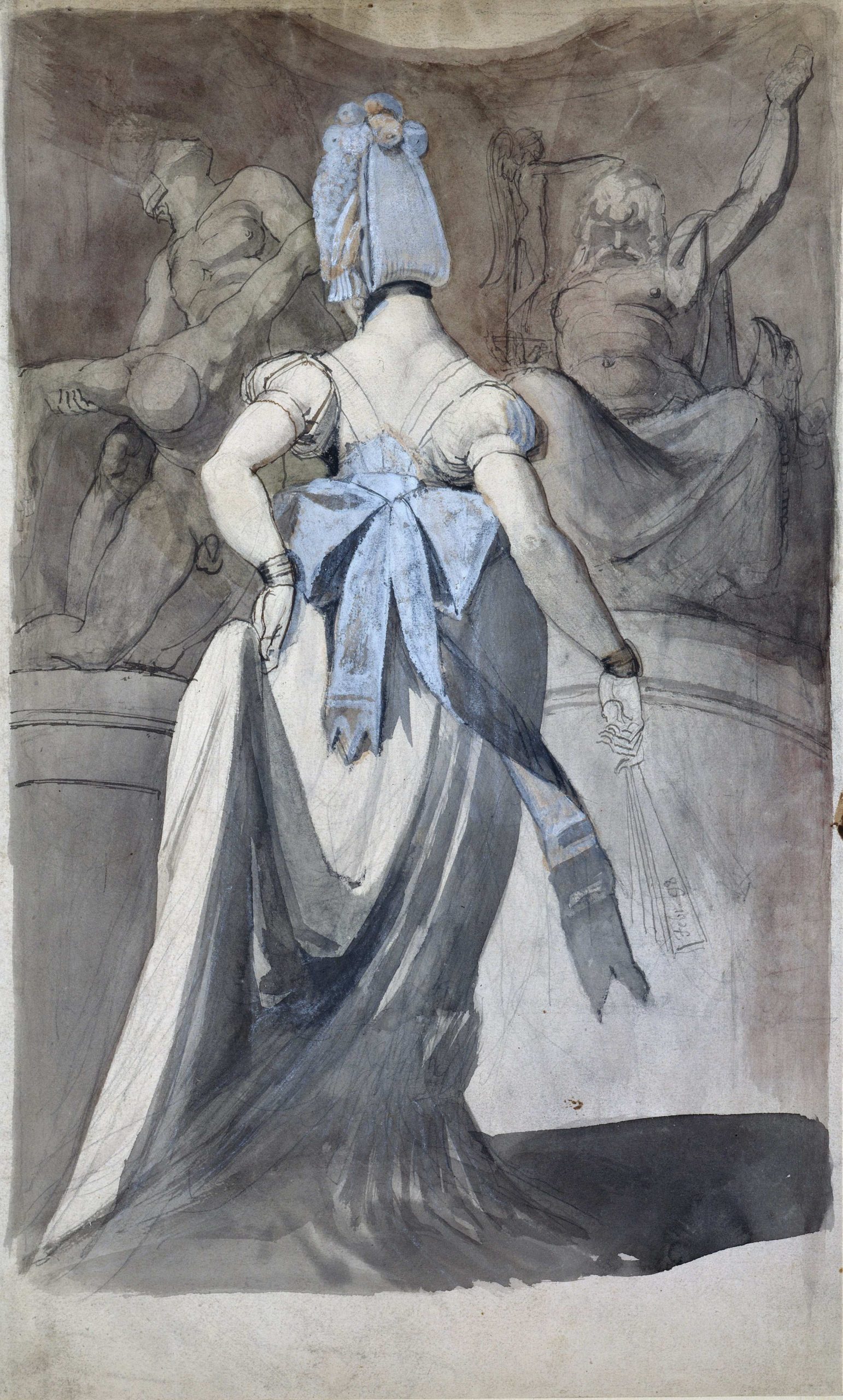
Berlin, open city

In military terms, an open city is a city that has abandoned all fortifying efforts. Once a city has declared itself open, the opposing military will be obliged to peacefully occupy the city, rather than destroy it, under international law.
As it happens Berlin is an open city, an open capital, once seat of empires, left open by wars, revolutions, the empty promises of history. An abandoned Xanadu in which people of a certain taste and upbringing have historically found a certain comfort—in the way I have always found an odd satisfaction reading the line describing St. Petersburg, then Leningrad, in its greyest years, in Akhmatova’s Requiem:
‘Like a worthless emblem, flapping its piece.’
As of now I sit on the 20-something floor of my friend’s apartment building in Lewisham and can see a lane of brick houses with white framed windows. The same white stairways leading up to the doors. Neighbours all sardined next to each other—the English way. A sight you would never behold in Berlin.
At a bar-restaurant in Kreuzberg my friend told the waiter they live in London. The waiter said, my condolences. A blackboard showed the price of pizza, hanging on the red paint peeling off the wall, lit by candles.
There are the people who grew up in houses—mansions, farms, townhouses. And then there are the people who grew up in high-rise apartments. Berlin is a city for those who grew up in apartments. To live in a high-rise apartment is to live outside this world. You live on the ‘East 84th Street’, but also not really on the East 84th Street. The location is delusory. The truth—the world you see after the elevator ride: the four walls facing you, the windows looking outward from two sides, through which you choose or choose not to see the world. You live alone in a tower full of people.
Likewise, there are the people who grew up on islands, and the people who grew up on continents. On land everything is vast, and individual beings become somewhat inconsequential. One thing I felt in Berlin was freedom. The vast distance between people on boulevards, even in the busiest hours. It is hard to believe that this is the most populous city in the EU. The empty city is full of people, all sorts.
‘Let’s go to Berlin’, I said to Willow on St Aldates after a lecture in Week 6. We almost got hit by a bus after I said that. In Berlin it is hard to get hit by a bus. The streets are wider. In Berlin living is easy. In a way, it is the necessary English escape: more room; the cigarettes are cheaper; night clubs in totalitarian bunkers where one spends days on end. In a way it has changed little from the Berlin in Isherwood’s diaries—later Cabaret, almost a century ago, only now more brutalist than art deco.
Our first day, after a miraculous malfunction of the vending machine (they have vending machines for everything in Germany, possibly to further reduce human contact), we got 52 cigarettes for minus 5 euros and smoked on Karl-Marx-Allee. A major avenue—originally Stalinallee, built after the war with two sides of neoclassical apartments; a cathedral for the working class, with Byzantine mosaics and marble reliefs and all; the first in Berlin to have modern heating, a luxury that the power plant which now houses Berghain was built to sustain. It was almost empty. I saw a lady lighting a cigarette with a match walking her dog. I saw two boyfriends in Carhartt going into a grand foyer with groceries.
Taking a stroll—East Berlin is full of apartment blocks in faded colours that people would now lazily describe as ‘Soviet’. The same way they would have described the apartments I used to see from my window in Beijing. Even though it was considered the height of capitalistic luxury in China when it was built, in the ‘80s, following the market reforms of Deng Xiaoping. In the same way, the German Democratic Republic was considered the most glamorous and open of the Socialist brother states, with the best of concrete apartments, discos, and naked beaches. It was the closest to the West. The storefront window of Socialism, with the TV Tower and the World Clock in Alexanderplatz. But even East Berlin would lose its colours, at night, when the light from the West would outshine its silence. When all the malls of West Berlin would light up with shelves that were never left empty—capitalism then seemed to be running on inexhaustible energies.
There are the people to whom names like ‘Karl Marx’, ‘Karl Liebeknecht’, ‘Rosa Luxemburg’ are metonyms from the textbook. And there are those who live in Berlin, either physically or via ideology or upbringing, to whom they are allee, straße, platz, old friends, old dreams.
Berlin is like how Freud described Rome, a psychic entity manifested in a city. If it is a book it would be Nabokov’s Ada, piled with references and allusions and borrowed memories that one doesn’t have to study in order to enjoy, though it does feel better, again with that peculiar sense of satisfaction—when we saw Sigmund Freud Private University occupying parts of the terminal of the now decommissioned Tempelhof Airport, a monument of the Third Reich, and the lifeline of West Berlin during Stalin’s blockade, when Allied bombers dropped candies on children. Some other parts were seemingly left empty. What desecrated Hitler’s altar, in this case, seems not to be the abrasion of the ages, that Albert Speer was so eagerly preparing for, with his theory of Ruin Value, but rather—banality, some general desultoriness of life…
Or in Paris Bar, the restaurant in West Berlin opened by a cook of the French occupying forces near the Universität der Künste, later run by dandy and poet Michel Würthle, where art students who later became big paid with their work rather than cash. Above my seat was a large headshot of a 50-something Yves Saint Laurent, and in 2005 they avoided bankruptcy by selling a painting by Martin Kippenberger taken off the wall. We had only drinks there, and escargots, to save money, but also because no one in Berlin seems to eat.
I was watching Paris, Texas when I saw a shot of Houston that I was almost certain was Berlin. Of course, it is not. But I would like to think that Berlin is in every street I have ever pondered, looking for something that was never quite there.
In the very place where the Wall fell, you truly feel like you’re living at the end of history, though in a soberingly less optimistic sense than Fukuyama. If Berlin tells you one thing it is that History, in the great German philosophical sense, does not exist, that the choices made are arbitrary and follow no particular spirit or grand narrative, and that anything could be changed at any moment, in a way that I find both frightening and sublimely reassuring, like watching a paper bag fly, lying back on the grass in the Lustgarten.∎
Words and photo by Zac Yang.







